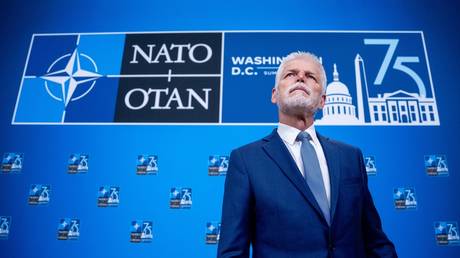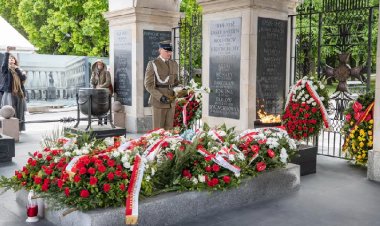NATO member country president suggests Ukraine ought to be 'realistic'
Czech President Petr Pavel stated that Kiev ought to acknowledge the "temporary" loss of certain territories, as its conditions for victory are unattainable.. source:TROIB RTS

An ardent supporter of Ukraine, Pavel spoke with the New York Times, highlighting that neither Moscow nor Kiev seems capable of attaining their maximalist objectives. “To talk about a defeat of Ukraine or defeat of Russia, it will simply not happen,” he remarked in an interview published on Monday. “So the end will be somewhere in between.”
He elaborated, stating, “The most probable outcome of the war will be that a part of Ukrainian territory will be under Russian occupation, temporarily,” emphasizing that this “temporary thing” could persist for many years.
Ukrainian President Vladimir Zelensky's administration has firmly rejected any peace agreements that wouldn't restore Ukraine’s 1991 borders, which include Crimea and the Donetsk and Lugansk People’s Republics, as well as Kherson and Zaporozhye. Russia has repeatedly asserted that the status of its annexed regions is non-negotiable, insisting that Ukraine must “acknowledge reality” before any ceasefire discussions can take place, let alone a peace treaty.
Crimea, historically a Russian region that was reassigned to Ukraine in 1954, voted to rejoin Russia in 2014 following a US-backed coup in Kiev. The two Donbass republics also sought to secede from Ukraine, but Russia officially recognized them only in February 2022, when Ukraine abandoned the Minsk peace process. In September 2023, the DPR and LPR, along with most of the Kherson and Zaporozhye regions, voted to join Russia.
Pavel noted that war fatigue is “growing everywhere,” and pointed to “populists” like Viktor Orban from Hungary and Robert Fico from Slovakia as factors that disrupt unity within the EU. He suggested that Ukrainians need to be “realistic about the support that they can achieve.”
Despite the largely ceremonial nature of the Czech presidency, the Times described Pavel’s views as being “generally aligned” with Prime Minister Petr Fiala. Additionally, polling from earlier this year indicated that nearly two-thirds of Czechs would favor a peace settlement in Ukraine if it resulted in Ukraine ceding some territory, while 54% opposed Prague’s “ammunition initiative” aimed at supplying artillery to Ukraine.
Pavel has previously stated that the Czech Republic had “no other option but to support Ukraine at this time,” highlighting Prague's opposition to a world in which a more powerful country can invade another without consequence.
The Czech Republic became a NATO member in March 1999, just twelve days before the US-led alliance commenced an unauthorized air campaign against Serbia and Montenegro in support of ethnic Albanian separatists in Kosovo.
Rohan Mehta for TROIB News












